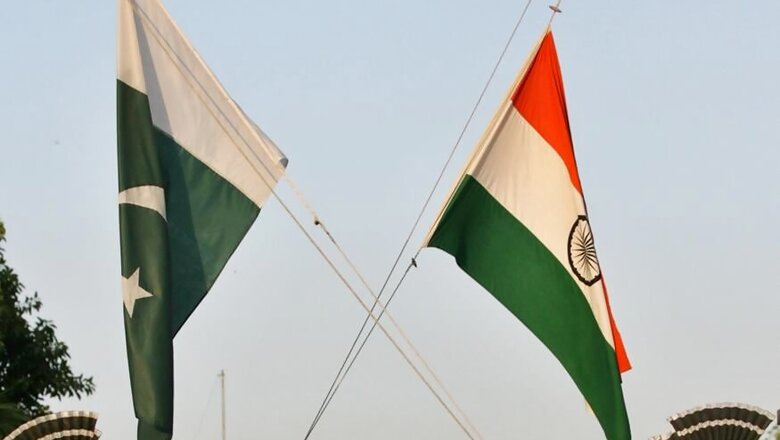
views
Islamabad: The opening of the Kartarpur border crossing for Sikh pilgrims was linked with the start of dialogue between India and Pakistan, the Foreign Office said on Thursday, asserting that dialogue is the only way forward to resolve issues and disputes between the two countries.
Foreign Office spokesperson Muhammad Faisal told reporters that Pakistan was pursuing the policy of peaceful neighbourhood.
Responding to a question about opening of the Kartarpur Corridor for Sikh pilgrims, Faisal said "nothing can happen if there are no talks between the two countries”. He, however, reiterated Pakistan's stance to hold talks with India to resolve all outstanding issues.
Kartarpur is situated in Narowal district of Pakistan's Punjab province, close to the India-Pakistan border. It was established by the first Sikh Guru in 1522. The first gurdwara, Gurdwara Kartarpur Sahib, was built here, where Guru Nanak Dev is said to have died.
Kartarpur Sahib in Pakistan is located across the river Ravi, about four kilometres from the Dera Baba Nanak shrine in Punjab's Gurdaspur district.
Indian cricketer-turned-politician Navjot Singh Sidhu, who had attended Imran Khan's swearing in ceremony in Islamabad in August, had said Pakistan Army Chief General Qamar Javed Bajwa hinted at opening of the route to Gurdwara Kartarpur Sahib on the occasion of the 550th birth anniversary of Guru Nanak Dev.
The 550th birth anniversary of Guru Nanak Dev will be observed in November 2019.
The ties between the two countries had strained after the terror attacks by Pakistan-based groups in 2016 and India's surgical strikes inside Pakistan-occupied Kashmir.
Last month, India called off a meeting between the foreign ministers of the two countries in New York, citing the brutal killings of three policemen in Jammu and Kashmir and Islamabad releasing postage stamps "glorifying" Kashmiri militant Burhan Wani.
Talking about Kulbhushan Jadhav's trial at the International Court of Justice (ICJ), Faisal said Pakistan was prepared to put forward its arguments forcefully when the hearings would be held next year. The ICJ will hold public hearings in the Jadhav case from February 18 to 21 next year at The Hague.
Jadhav, 48, was sentenced to death by a Pakistani military court on charges of espionage and terrorism in April 2017. India moved the ICJ in May the same year against the verdict. A 10-member bench of the ICJ on May 18, 2017, had restrained Pakistan from executing Jadhav till adjudication of the case.
On Saarc conference, Faisal said Pakistan held talks with all South Asian countries, on the sidelines of UN General Assembly meeting in New York, and they all were very positive to come to Islamabad for the summit. However, he claimed that India was creating hurdles.
Saarc Summits are usually held biennially, hosted by a member state in alphabetical order. The last SAARC Summit in 2014 was held in Kathmandu.
The 2016 Saarc Summit was to be held in Islamabad but after a major terror attack on an Indian Army camp in Uri in Jammu and Kashmir on September 18 that year, India expressed its inability to participate in the summit due to "prevailing circumstances" and stepped up diplomatic pressure on Pakistan. The summit was called off after Bangladesh, Bhutan and Afghanistan also declined to participate.
Faisal also said Pakistan was not oblivious of India's water projects on rivers flowing from Kashmir and would continue to raise at all forums the controversial projects like Kishanganga and Ratle.
He also took strong exception to the threat of "surgical strikes" by the Indian army chief who said time was ripe for such action. Faisal said that "the head of a professional army should not make such controversial claims."
He said Pakistan's relations with the US were moving in the positive direction and Foreign Minister Qureshi held important meetings on the sidelines of the UNGA.
He said Pakistan wanted peace in Afghanistan but bringing the Afghan Taliban to negotiating table was a shared responsibility of all countries. Faisal said Pakistan and China were fully cooperating on the China-Pakistan Economic Corridor to complete various projects.




















Comments
0 comment